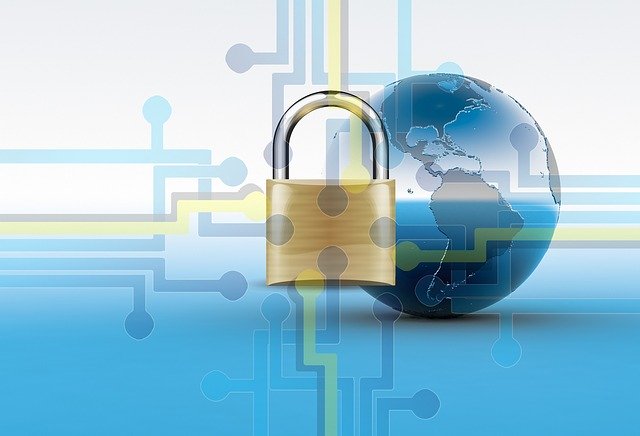There are many different types of SSL/TLS certificates available today which can make it quite challenging to choose the right option that suits your business needs. Especially if you are planning to install Exchange SSL certificates, then it’s important to know everything about buying and installing them on your server. Earlier, it was not mandatory to have SSL certificates for Exchange servers and the data which was transmitted not had encryption which left them exposed to hackers.
Since 2007, Microsoft decided to install SSL.TLS certificates in all of its future versions to ensure that the data remains secure and protected when it is exchanged among different networks across computers.
What is Microsoft Exchange Certificate?
Microsoft Exchange Server is one of the most widely used platforms for managing email, collaboration, scheduling meetings and serves as a calendar. It was developed by Microsoft and can be used across the Windows Server operating system and available as on-premise or SaaS platform. The first version of Microsoft Exchange Server was introduced in 1996 as Exchange Server 4.0 and later other versions such as Exchange Server 5.5, 2000, 2003, 2007, 2010, 2016 and 2019 were made available to the users.
Exchange Server certificates are also known by other names such as SAN SSL certificate or UCC SSL. This type of certificate offers economical solution for companies who wish to secure multiple domains and multiple host names rather than using different certificates for each domain. It simplifies the process of managing your host and domain services in this manner.
Microsoft provides a range of host services including ActiveSync, AutoDiscover, Mailboxes etc. Thus, there is always a risk of misuse of information by hackers among enterprises which makes it important to have security solutions such as Exchange Server SSL certificates.
What forms Exchange SSL certificates distinctive?
The UCC or SAN certificate can be used for providing security for up to 250 domains using a single certificate (depending upon SSL provider). This is useful for enterprises having multiple domains using a shared IP address and they are mainly designed for Microsoft Exchange Servers. The Multi Domain Certificate or Microsoft Exchange Certificate provides a quick and convenient option for enterprises looking to secure multiple domains using a single solution. Thus, a single multiple domain certificate which also has the benefits of Exchange certificate can be helpful in covering up to 250 domains.
Key benefits of using Exchange SSL certificates
- Unified Communications or Exchange SSL certificates are particularly suitable to the Microsoft Exchange or Microsoft Office Communication Server.
- When you compare wildcard with exchange certificate then a limitation arises due to first level of subdomains’ security. While exchange SSL can secure multiple level domains easily. It thus reduces administrative cost and complexity of security related issues.
- These certificates also provide support to the Autodiscover feature in Microsoft Exchange which helps in simplifying client administration.
- Exchange SSL certificates are versatile as there is no need to buy additional certificates for different domains. Thus, if you want to secure different domains, multiple domain names, this type of certificate may be used for eliminating the issue of managing multiple certificates that come with different expiry or renewal dates.
- They come with state-of-the-art encryption that helps in keeping your information private and confidential which safeguards sensitive information against hackers.
- Enterprises can easily connect to Exchange Server through a browser by using the Outlook Web Access and it does not work anywhere using a self-signed certificate.
- They may be useful in authenticating MS Exchange server to provide assurance to the customers that they are dealing with a trusted source. At the same time, by using an Exchange Server Certificate through a trusted CA
- In addition, there are other benefits that include server and browser computability, unlimited server licenses, warranties.
Steps to follow to get your Microsoft Exchange SSL certificate
If you are planning to buy SSL certificate, then its necessary to have an IP address for the different types of certificate that you need to use. Thus, if you have multiple and different domain names using one IP address, then you need to secure them using UCC certificate.
Next, you need to have the certificate signing request or the CSR which needs to be generated on your web server before you order an SSL certificate. The Certificate Authority will be able to use the information provided in the CSR for creating your certificate.
- Selecting an SSL certificate
There are different options available in the market and UCC SSL certificates are the best option suited to the Microsoft Exchange server environments as they are specifically designed for this purpose.
- Certificate Signing request
Once you choose the certificate, you will need to get a certificate signing request and fill in all the required information and the CA will go through the details. CSR should be created on the server on which the certificate is required to install. CSR generation will also provide a private key that you need to save on desktop.
- Complete your order process
As soon as you complete the CSR, you should complete the configuration process and make sure to wait for the domain validation mail from the CA.
- Wait for confirmation from CA
Once the vetting process is complete, you will be able to receive your Exchange SSL certificate in email, which may be downloaded to your server. You should install this certificate on your server.
Conclusion
Businesses who are implementing Microsoft Exchange Server need to take crucial decisions regarding managing their SSL certificates. With Exchange SSL certificate, all domains will be covered under a single certificate. In addition, security of data and information is of prime importance and all enterprises need to ensure that they can provide a safe browsing experience to their customers and safeguard all their personal information ensuring greater privacy and protection at all times and it can be achieved with Exchange SSL certificate.





